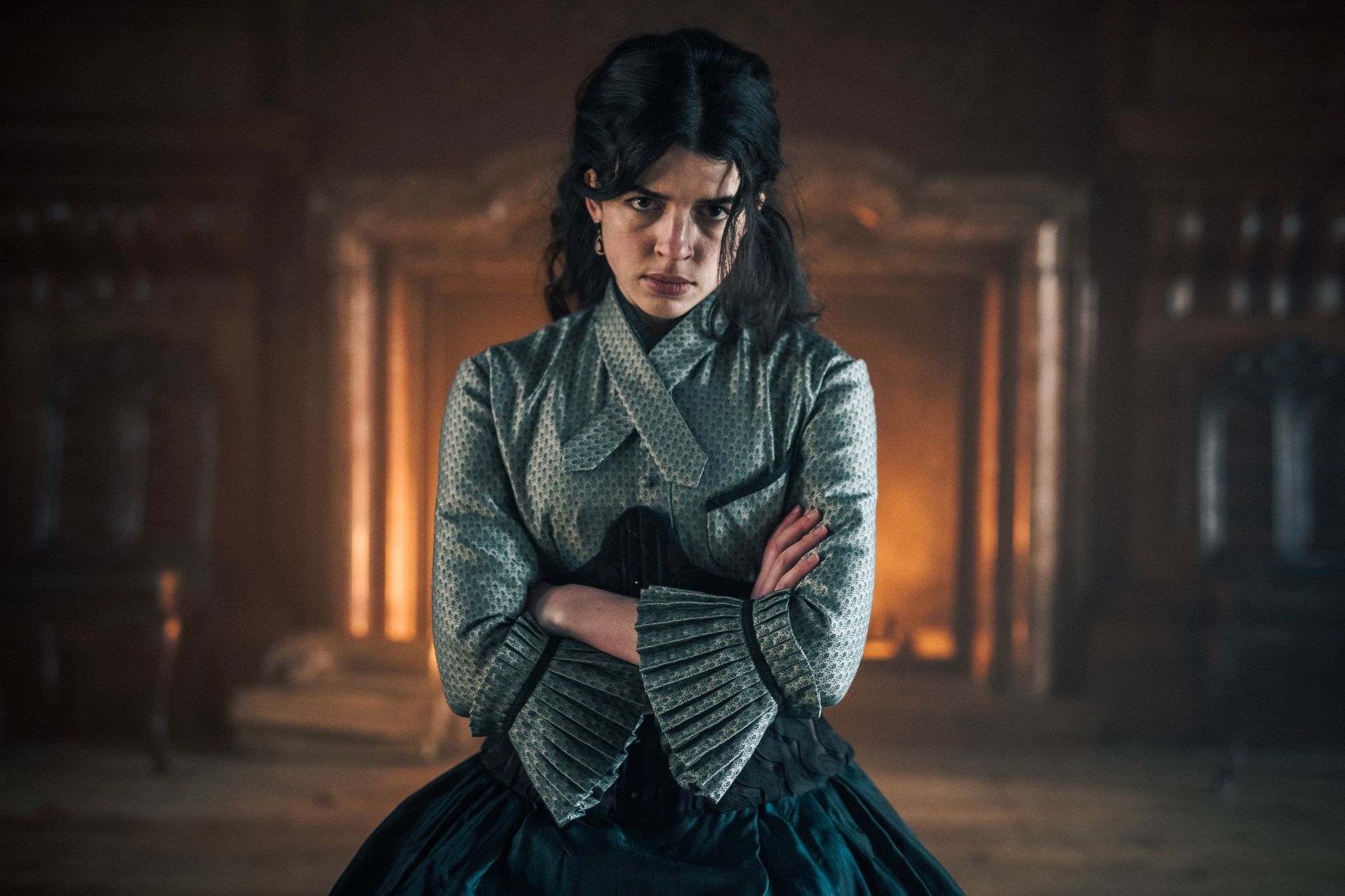František Palacký scratches his forehead and shouts with the expression of a deaf grandfather: “Havlíčková? Is that the one from Havlíček?
The station’s first original domestic project Canal+which can be seen in her video library from Sunday and was co-produced by Czech Television, taking history as a rather strange enemy.
In the opening scenes of the six-part daughter of the Nation, the viewer certainly does not feel that he is at a meeting of Czech parliamentarians. Palacký played by Jan Vlasák, František Ladislav Rieger portrayed by Jiří Langmajer or František August Brauner played by Leoš Noha are more reminiscent of a meeting somewhere in an institution for the mentally ill. Men either cannot hear, or they explain things to each other in such a way that even the last schoolboy can understand the discussion. It seems at times that Langmajer forgot himself as an actor in films of a completely different genre, ie those in which he usually works and likes to use the word “squirting” .
Only after a while does it become obvious that the leader Matej Chlupacek with the screenwriter Lucía Vaňková, they suddenly try a Czech version of historical or historical satirical miniseries such as Big from HBO.
The heroine, the daughter of Karel Havlíček Borovský Zdeňka Havlíčková, looks a bit like Catherine the Great from this comedy. He also finds himself in an unknown place, not at the Tsar’s court, but in better company than usual for the poor orphan. Famous men of the Czech nation believe that the descendants of the famous writer will be a necessary symbol of revival. And through the national lottery, which is supposed to give this teenage woman a living, they want to make her a perfect puppet serving only the best national interests.
But although the screenwriter and creator of Velika Tony McNamara was obviously, suddenly and recklessly playing with history, the Czech miniseries falls largely in style. It is more obvious in the first parts. First of all, it seems that this was not an intention and that the authors just did their research poorly, and as a result they let the heroes and heroines work in it the rather modern way. From sighs and strange movements to greetings with a fist or an elbow like somewhere in a typical primary school in the 21st century.
Of course, this is done on purpose, as the scenes in which the thousand-koruna banknote is in the famous contemporary design with Havlíčková on the front are shown later. And it is very evident in the third part, when the ball turns into a dance party with modern music and green disco lights.
These refreshing showers are from time to time – maybe also inspired by a photo Marie Antoinette from director Sofia Coppola – however, they only increase doubts about what the series is about as a whole.
The country girl wants to draw attention to what happened to women at that time, which literally belonged to men, for example, they even went to prison for their debts, so that the person who owe money to pay it back. Because a woman couldn’t work if she didn’t want to be a hairdresser, for example. So the intention is admirable, but it is difficult to say whether it will help to show Palacký and other men as one-dimensional portraits. It is certainly a good thing if these outstanding figures of Czech history do not appear as perfect marble monuments. Treating them like this, however, does not feel light-hearted or brutal, but rather disrespectful.
“At least one day our national nature will be good for something,” Palacký suggests in one scene the idea of holding a hearing for an advocate for Havlíčková unofficially, using gossip. And then everyone laughs wonderfully. Unfortunately, it feels incredibly forced and ordered. Every joke seems to have a point.
At the same time, the series is not a comedy, not to mention a satire, or an unusual view of our history. It is a romance primarily playing with the popular contemporary concepts of fatal love from the consumer reading of the time.
As a story for young people about rebellion against adults and unfulfilled love, Nighean na Náise makes the most, and perhaps the only sense.
After all, the last statement finds its own tone from the third episode, when the mood changes definitively and it is mainly about love. The last three parts are directed Christina Grossan they are more reminiscent of historical soap operas, as they were The Bridgertons. And here the creators are more at home than in a dig at history or an attempt at a refreshing change of perspective.
Antonie format in the role of Havlíčková, she can be a self-confident heroine, a bit of a teenager, a bit of a carpenter, the daughter of her famous father, who also refused to make compromises during her life. It’s a shame that the main character is run by such a strange group of powerful people that any necessary tension or humor disappears from the series.
Perhaps history has been in human attraction for so long that it is now necessary to balance it with the most radical revolution possible. Nevertheless, the sight of disintegrated Czech actors, who seem unable to count to five, does not seem to be the happiest barometer of a history that has so far been unfair. turn this. Or maybe it’s just difficult to want to create portraits of these men before Czech films and historical dramas manage to give them a serious, complex and inspiring series.
Ministers
The girl of the country
Directed by: Cristina Groșan and Matěj Chlupáček
The miniseries can be seen in the Canal+ video library.
2024-09-29 14:34:56
#Review #Revivalists #lunatics #Czechs #kind #Country #Girl #deserve #Now.cz

:quality(80)/cdn-kiosk-api.telegraaf.nl/665e0f40-7e90-11ef-9964-a64e1de5f03a.jpg)
